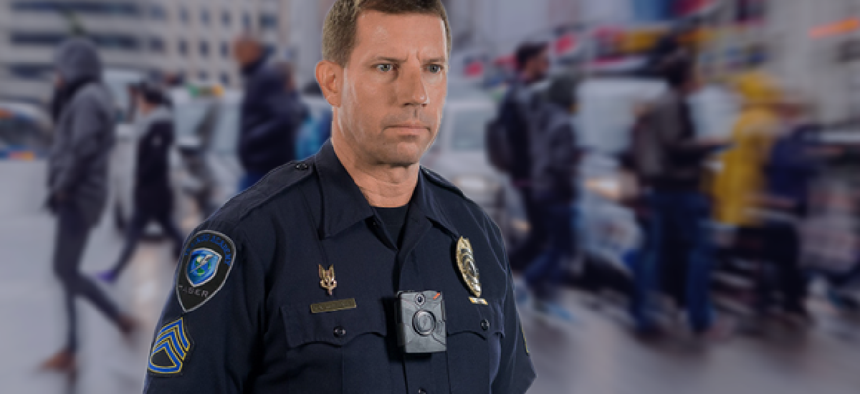Body cams for police? Yes. Policies on usage? Not so much.


Connecting state and local government leaders
A report by the Leadership Conference and Upturn evaluates the policies governing body -orn cameras at police departments across the country.
While many police department across the country have adopted body camera programs, the policies for managing that video vary, leading to significant differences from one locality to the next when it comes to questions on what gets recorded, who has access to video, storage strategies and many other factors.
A recently released scorecard created by the Leadership Conference and Upturn evaluated the civil rights safeguards of the body-worn camera policies being used by 25 police departments, including 15 of the country’s largest departments.
The cities were given one of three grades based on their level of compliance with the eight criteria described in the Civil Rights Principles on Body Worn Cameras. The criteria examine whether a department:
- Makes the department policy publicly and readily available
- Limits officer discretion on when to record
- Addresses personal privacy concerns
- Prohibits officer from viewing footage before filing reports
- Limits the retention of footage to six months
- Protects footage against tampering and misuse
- Makes footage available to individuals filing police misconduct complaints
- Limits the use of biometric technologies that can identify individuals in the footage.
While every department studied had room for improvement in some areas, grades on policies governing the use of technology were particularly poor. Police departments in in just four cities -- Houston, Dallas, Las Vegas and Austin -- require that footage be deleted within six months. Policies in New York City and Parker, Colo., allow unflagged footage to be retained for a year.
Many departments also lack guidelines to guard against evidence tampering. Only departments in Oakland, Cleveland, Las Vegas and Baltimore expressively prohibit both footage tampering and unauthorized access, and require that all access to recorded footage will be logged or audited.
Baltimore is also the only city with a policy governing the use of biometric technologies in conjunction with body camera footage, sharply limiting the use of facial recognition to identify recorded individuals — an important and positive step, the authors said.
The department that received the highest marks was in Parker, Colo. It was added to the report because the American Civil Liberties Union found its body worn camera policy to be one of the best in the nation.
The lowest marks received were in Ferguson, Mo., where the police department does not publish its policy, and that policy fails to address privacy concerns, the deletion of footage or protections against footage tampering and unauthorized access. The full report can be read here.




